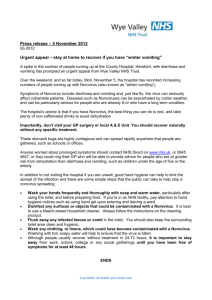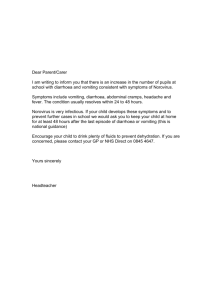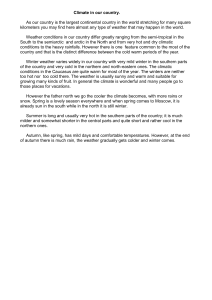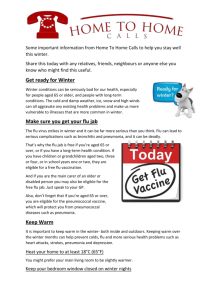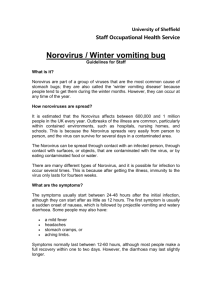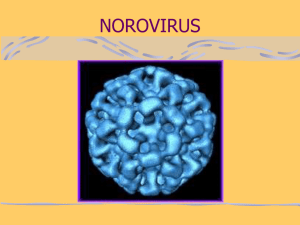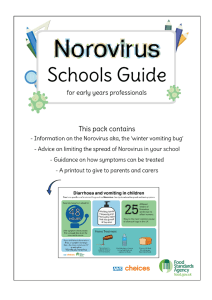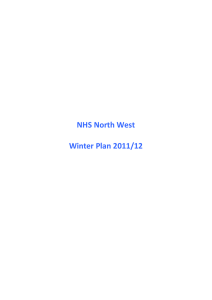Winter Advice Sheet - Grosvenor Place Surgery
advertisement
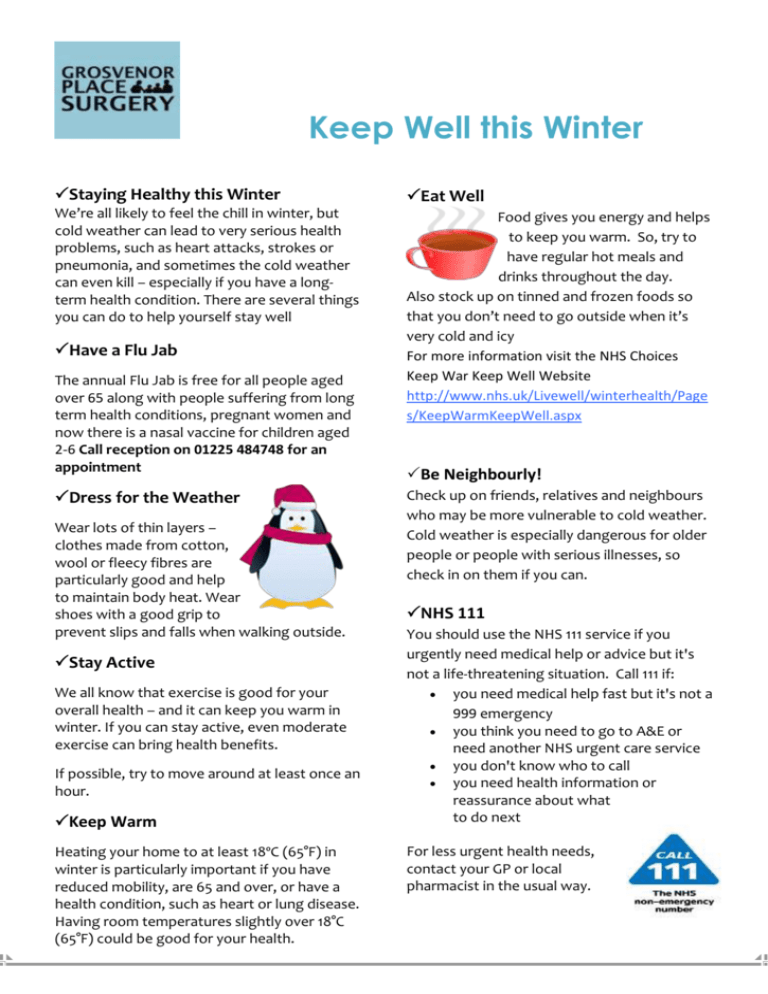
Keep Well this Winter Staying Healthy this Winter Eat Well We’re all likely to feel the chill in winter, but cold weather can lead to very serious health problems, such as heart attacks, strokes or pneumonia, and sometimes the cold weather can even kill – especially if you have a longterm health condition. There are several things you can do to help yourself stay well Food gives you energy and helps to keep you warm. So, try to have regular hot meals and drinks throughout the day. Also stock up on tinned and frozen foods so that you don’t need to go outside when it’s very cold and icy For more information visit the NHS Choices Keep War Keep Well Website http://www.nhs.uk/Livewell/winterhealth/Page s/KeepWarmKeepWell.aspx Have a Flu Jab The annual Flu Jab is free for all people aged over 65 along with people suffering from long term health conditions, pregnant women and now there is a nasal vaccine for children aged 2-6 Call reception on 01225 484748 for an appointment Dress for the Weather Wear lots of thin layers – clothes made from cotton, wool or fleecy fibres are particularly good and help to maintain body heat. Wear shoes with a good grip to prevent slips and falls when walking outside. Stay Active We all know that exercise is good for your overall health – and it can keep you warm in winter. If you can stay active, even moderate exercise can bring health benefits. If possible, try to move around at least once an hour. Keep Warm Heating your home to at least 18ºC (65°F) in winter is particularly important if you have reduced mobility, are 65 and over, or have a health condition, such as heart or lung disease. Having room temperatures slightly over 18°C (65°F) could be good for your health. Be Neighbourly! Check up on friends, relatives and neighbours who may be more vulnerable to cold weather. Cold weather is especially dangerous for older people or people with serious illnesses, so check in on them if you can. NHS 111 You should use the NHS 111 service if you urgently need medical help or advice but it's not a life-threatening situation. Call 111 if: you need medical help fast but it's not a 999 emergency you think you need to go to A&E or need another NHS urgent care service you don't know who to call you need health information or reassurance about what to do next For less urgent health needs, contact your GP or local pharmacist in the usual way. Colds and Flu Norovirus A cold is a mild viral infection of the nose, throat, sinuses and upper airways. It's very common and usually clears up on its own within a week or two. Flu, which is similar to a cold tends to start more suddenly, be more severe and last longer. If you're otherwise fit and healthy, there's usually no need to see a doctor if you have flu-like symptoms. The best remedy is to rest at home, keep warm and drink plenty of water to avoid dehydration. You can take paracetamol or ibuprofen to lower a high temperature and relieve aches if necessary. Norovirus, sometimes known as the winter vomiting bug, is the most common stomach bug in the UK. Consider visiting your GP if: you're 65 years of age or over you're pregnant you have a long-term medical condition – such as diabetes, heart disease, lung disease, kidney disease or a neurological disease you have a weakened immune system – for example, because you're having chemotherapy or have HIV you develop chest pain, shortness of breath or difficulty breathing, or start coughing up blood your symptoms are getting worse over time or haven't improved after a week The virus is highly contagious. It can affect people of all ages and causes vomiting and diarrhoea. There's no specific cure for norovirus, so you have to let it run its course. It's usually mild and shouldn't last more than a couple of days. The period from when you're infected to when you start to show symptoms (the incubation period) usually lasts between 12 and 48 hours. You may be infectious to other people during this time. Although having norovirus can be unpleasant, it's not usually dangerous and most people make a full recovery within a couple of days without having to see their GP. If you have norovirus, follow the steps below to help ease your symptoms: Preventing Colds and Flu Colds and flu spread very easily. It’s worth following these simple hygiene measures to reduce the risk of catching and spreading infections. • Always cover your nose and mouth with a tissue when you cough or sneeze, and encourage visitors and relatives to do the same. • Throw away used tissues as soon as possible. • Wash your hands regularly with soap and water, and use a hand sanitiser gel when you’re out and about. drink plenty of water to avoid dehydration take paracetamol for any fever or aches and pains if you feel like eating, eat foods that are easy to digest stay at home – don't go to see your GP because norovirus is contagious and there's nothing your GP can do while you have it contact your GP to seek advice if your symptoms last longer than a few days or if you already have a serious illness Extra care should be taken to prevent babies and small children who have diarrhoea and vomiting from dehydrating by giving them plenty of fluids. Babies and young children can still drink milk We hope you have a Healthy and Happy Winter x Grosvenor Place Surgery
